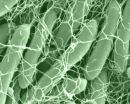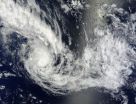(Press-News.org) CHAPEL HILL, N.C. - What's most important to a man as he decides whether or not to undergo prostate-specific antigen- PSA- screening for prostate cancer? What does he value most about the screening? And what's the best way to present the information to help him make an appropriate decision for himself?
An international team of scientists led by the University of North Carolina has published a study evaluating different ways of helping men consider their values about PSA screening. They report that the decision-making process was influenced by the format in which information was presented.
Their results were reported in the Feb. 11, 2013 online edition of the journal JAMA Internal Medicine.
Michael Pignone, MD, MPH, study senior author, says, "Whether to undergo PSA screening is a difficult decision for middle-aged men. PSA screening at best seems to produce only a small reduction in prostate cancer deaths and has considerable downsides.
"Effective prostate cancer screening aids should promote understanding of the benefits and risks involved in deciding whether or not to be screened and should incorporate patient values. Our study evaluated different values clarification methods to determine if there is a difference in men's decision-making based on how they are asked to think about what factors matter to them. We found that there is a difference, and our findings pave the way for further studies."
Dr. Pignone is professor of medicine and chief of the division of general internal medicine, senior research fellow and co-director of the program on medical practice and prevention for the Cecil Sheps Center for Health Services Research, and a member of UNC Lineberger Comprehensive Cancer Center.
The team described PSA screening decision options in terms of four key attributes: effect on prostate cancer mortality, risk of biopsy, risk of being diagnosed with prostate cancer and risk of becoming impotent or incontinent as a result of treatment.
These attributes were presented in three different formats. The balance sheet was a table of relevant features of PSA screening, and participants were asked to consider this information as they saw fit; in the second format, participants were asked to rate and rank the four attributes; in the third group, participants considered a series of hypothetical choices made up of different levels of these attributes.
The study involved 911 men ages 50 to 70 from the United States and Australia at average risk of developing prostate cancer. They were asked to complete questionnaires before and after value clarification.
Men who completed the balance sheet option where PSA screening versus no screening options were labeled most often chose the screening option: 43.7 percent. Men who completed the two unlabeled rate and rank and hypothetical choices surveys where the options were not labeled PSA screening or no screening were less likely to choose the screening option: 34.2 percent for the rate and rankings, 20.2 percent for the hypotheticals.
Dr. Pignone says, "What we learned was that how screening information is presented makes a difference in how men view the relative importance of different features of the decision. What this means is that more studies must be completed to determine the best method of value clarification around decision making for PSA screening."
###
Other UNC study authors are Trisha Crutchfield, MHA, MSIS; Carmen Lewis, MD, MPH; and Stacey Sheridan, MD, MPH. Additional authors are Kirsten Howard, PhD, MPH from the University of Sydney in New South Wales, Australia; Alison Brenner, MPH from the University of Washington in Seattle; and Sarah Hawley, PhD, MPH, from the University of Michigan.
Funding for the study was provided by an Established Investigator award K05 CA129166 from the National Cancer Institute (Dr. Pignone and Ms. Crutchfield) and from the University Cancer Research Fund of the University of North Carolina at Chapel Hill.
Prostate-specific antigen screening: Values and techniques shape decisions
2013-02-12
ELSE PRESS RELEASES FROM THIS DATE:
1-2 punch strategy against bacteria and cancer
2013-02-12
HOUSTON -- (Feb. 11, 2013) -- Cancer researchers from Rice University suggest that a new man-made drug that's already proven effective at killing cancer and drug-resistant bacteria could best deliver its knockout blow when used in combination with drugs made from naturally occurring toxins.
"One of the oldest tricks in fighting is the one-two punch -- you distract your opponent with one attack and deliver a knockout blow with another," said José Onuchic of Rice's Center for Theoretical Biological Physics (CTBP). "Combinatorial drug therapies employ that strategy at a ...
Strokes associated with surgery can be devastating
2013-02-12
MAYWOOD, Il. – Strokes that occur during or shortly after surgery can be devastating, resulting in longer hospital stays and increased risks of death or long-term disability.
But prompt identification and treatment of such strokes can improve neurologic outcomes, according to an article in the journal Expert Review of Neurotherapeutics by Loyola University Medical Center stroke specialists Sarkis Morales-Vidal, MD and Michael Schneck, MD.
The article answers commonly asked questions about the management of perioperative stroke. (A perioperative stroke is a stroke that ...
NASA sees Tropical Cyclone 15S form in So. Indian Ocean
2013-02-12
The fifteenth tropical cyclone of the Southern Indian Ocean season strengthened into a tropical storm today, Feb. 11, and NASA's Aqua satellite passed overhead hours after it reached tropical storm strength.
Tropical Cyclone 15S was born from the low pressure area designated as System 92S. System 92S developed on Feb. 9 and intensified into a tropical storm on Feb. 11 at 0300 UTC. At that time, Tropical Cyclone 15S had maximum sustained winds near 35 knots (40.2 mph/64.8 kph), making it a tropical storm. It was centered near 12.1 south latitude and 82.5 east longitude, ...
NASA eyes the birth of Tropical Cyclone Haley
2013-02-12
Tropical Cyclone Haley was forming quickly as NASA's Aqua satellite captured an image of the storm in the South Pacific Ocean.
On Feb. 9 at 2020 UTC (3:20 p.m. EST) the Moderate Resolution Imaging Spectroradiometer (MODIS) instrument aboard NASA's Terra satellite captured a visible image of System 93P (known in Fiji as 14F). The MODIS image showed a circular center of circulation with banding features, two things that indicated that the low pressure area was quickly organizing. The next day, the low became Tropical Storm Haley.
Tropical Cyclone Haley formed on Feb. ...
Parents' praise predicts attitudes toward challenge 5 years later
2013-02-12
Toddlers whose parents praised their efforts more than they praised them as individuals had a more positive approach to challenges five years later. That's the finding of a new longitudinal study that also found gender differences in the kind of praise that parents offer their children.
The study, by researchers at the University of Chicago and Stanford University, appears in the journal Child Development.
"Previous studies have looked at this issue among older students," according to Elizabeth A. Gunderson, Assistant Professor of Psychology at Temple University; Gunderson ...
Negative stereotypes about boys hinder their academic achievement
2013-02-12
Negative stereotypes about boys may hinder their achievement, while assuring them that girls and boys are equally academic may help them achieve. From a very young age, children think boys are academically inferior to girls, and they believe adults think so, too. Even at these very young ages, boys' performance on an academic task is affected by messages that suggest that girls will do better than they will.
Those are the conclusions of new research published in the journal Child Development and conducted at the University of Kent. The research sought to determine the ...
Differential parenting found to affect whole family
2013-02-12
Parents act differently with different children—for example, being more positive with one child and more negative with another. A new longitudinal study has found that this behavior negatively affects not only the child who receives more negative feedback, but all the children in the family. The study also found that the more risks experienced by parents, the more likely they will treat their children differentially.
Carried out at the University of Toronto with researchers from McMaster University and the University of Rochester, the study appears in the journal Child ...
Teaching teens that people can change reduces aggression in school
2013-02-12
Teenagers from all walks of life who believe people can't change react more aggressively to a peer conflict than those who think people can change. And teaching them that people have the potential to change can reduce these aggressive reactions.
Those are the findings of a new study published in the journal Child Development. The research was conducted at the University of Texas at Austin, Emory University, and Stanford University.
Prior research has shown that children who grow up in hostile environments, such as high-violence neighborhoods, are more likely to interpret ...
Alcohol abusers' depression often related to drinking
2013-02-12
PISCATAWAY, NJ – For problem drinkers, bouts of depressive symptoms are often the direct result of their heavy alcohol intake, according to a study in the March issue of the Journal of Studies on Alcohol and Drugs.
Experts have long known that heavy drinking can spur temporary episodes of depression—what's known as "substance-induced depression." However, this information is not always apparent to busy clinicians, and the new findings strengthen the evidence that the phenomenon exists as well as how common and clinically important it is.
"I don't know that the average ...
Anti-Muellerian hormone predicts IVF success
2013-02-12
Chevy Chase, MD ––Women with a high concentration of anti-Müllerian hormone stand a better chance of giving birth after in vitro fertilization, according to a recent study accepted for publication in The Endocrine Society's Journal of Clinical Endocrinology & Metabolism (JCEM).
Anti-Müllerian hormone (AMH) is produced by the ovaries. The study found women with high AMH levels were 2.5 times more likely to have a successful IVF cycle than women of a similar age with low levels of the hormone. AMH levels were a predictor of pregnancy and live birth, even when the mother's ...


